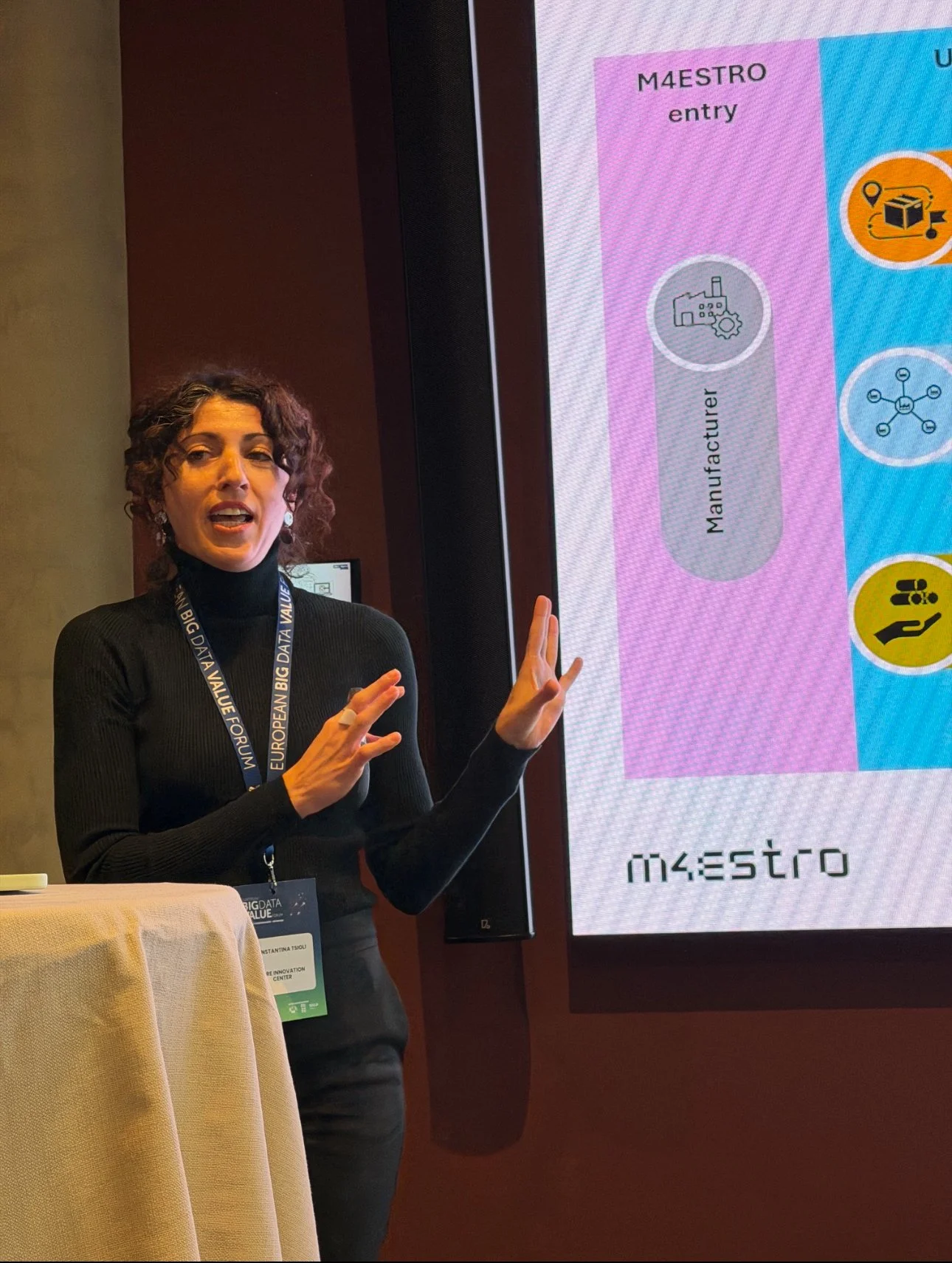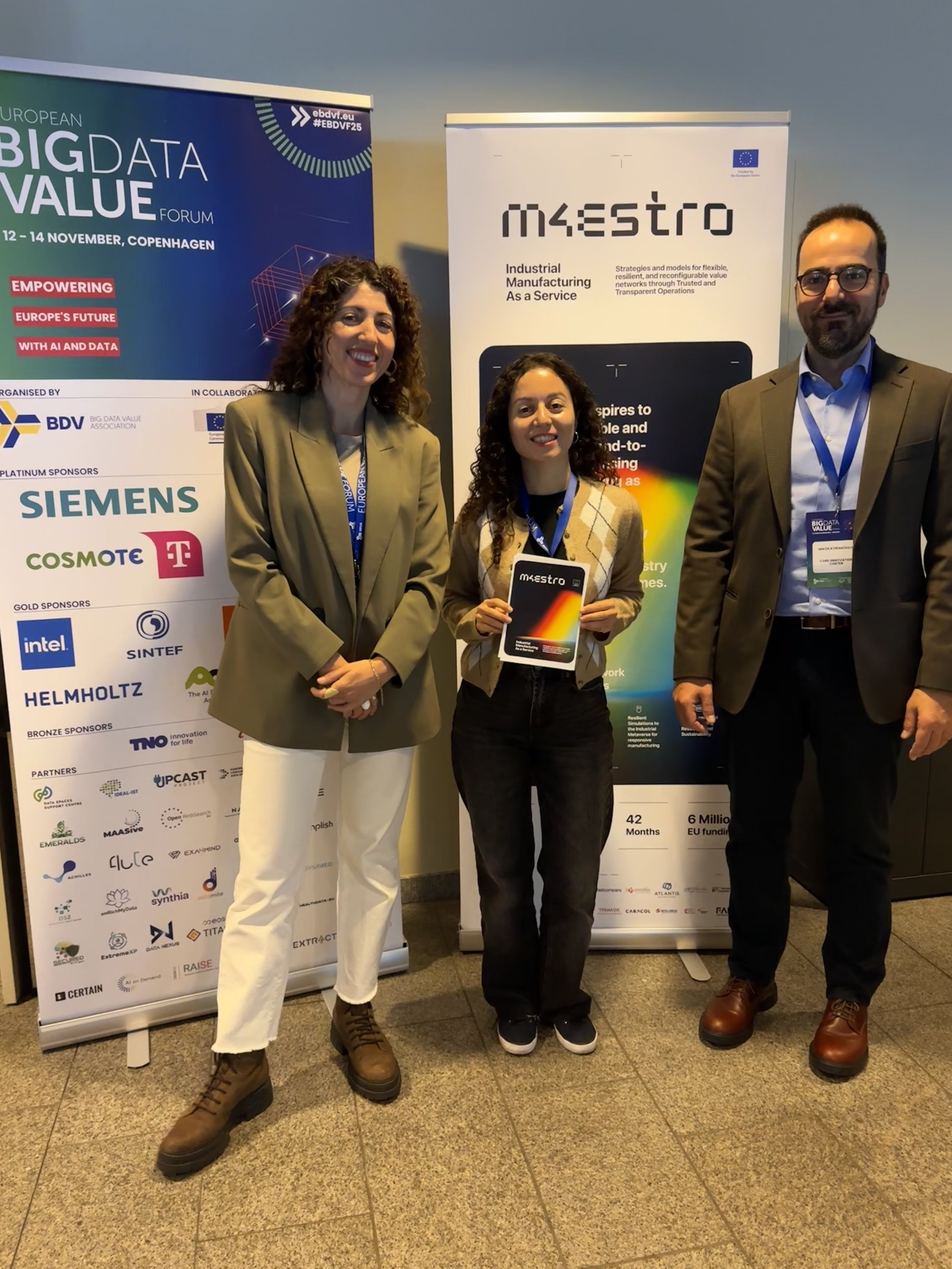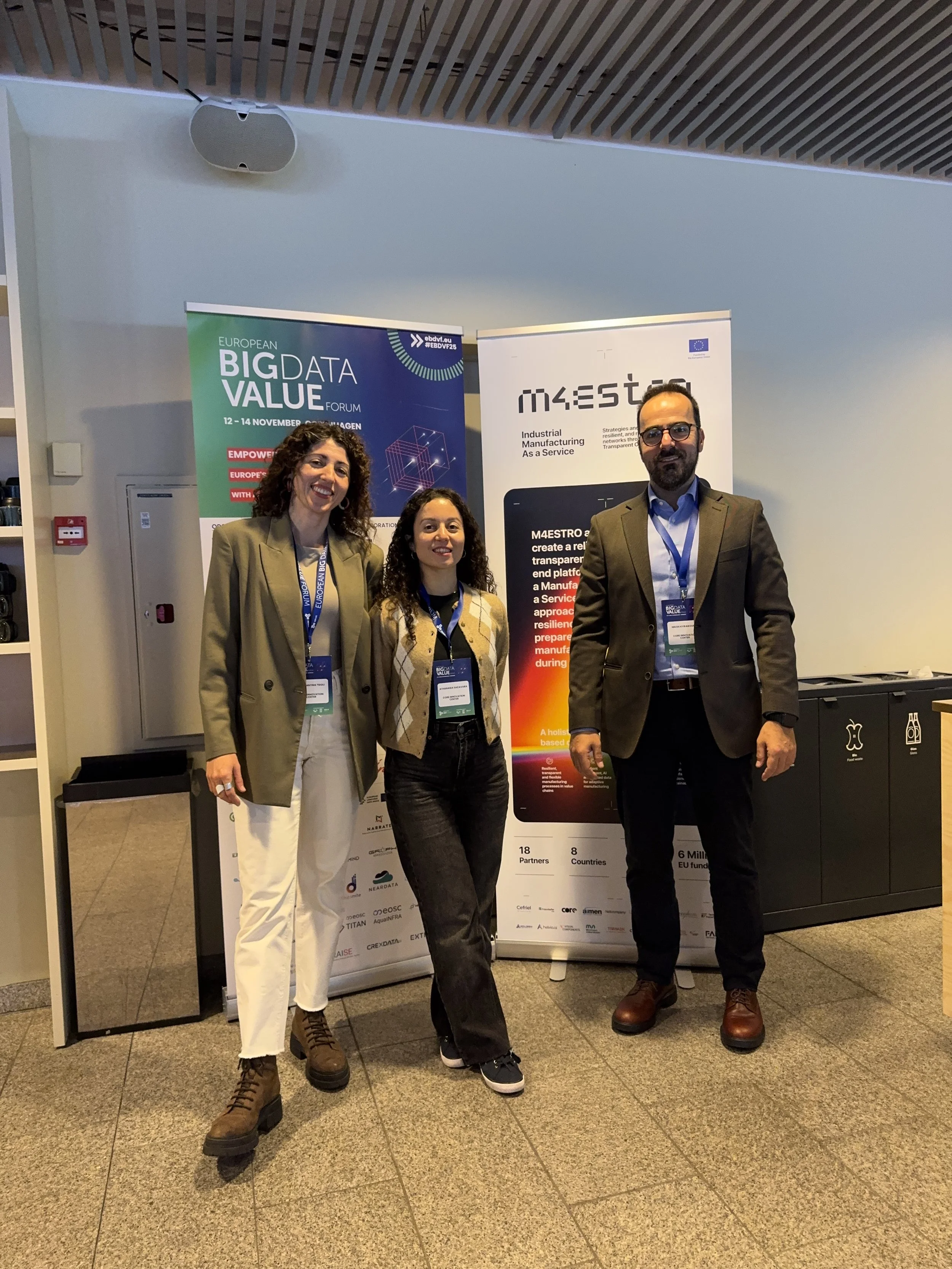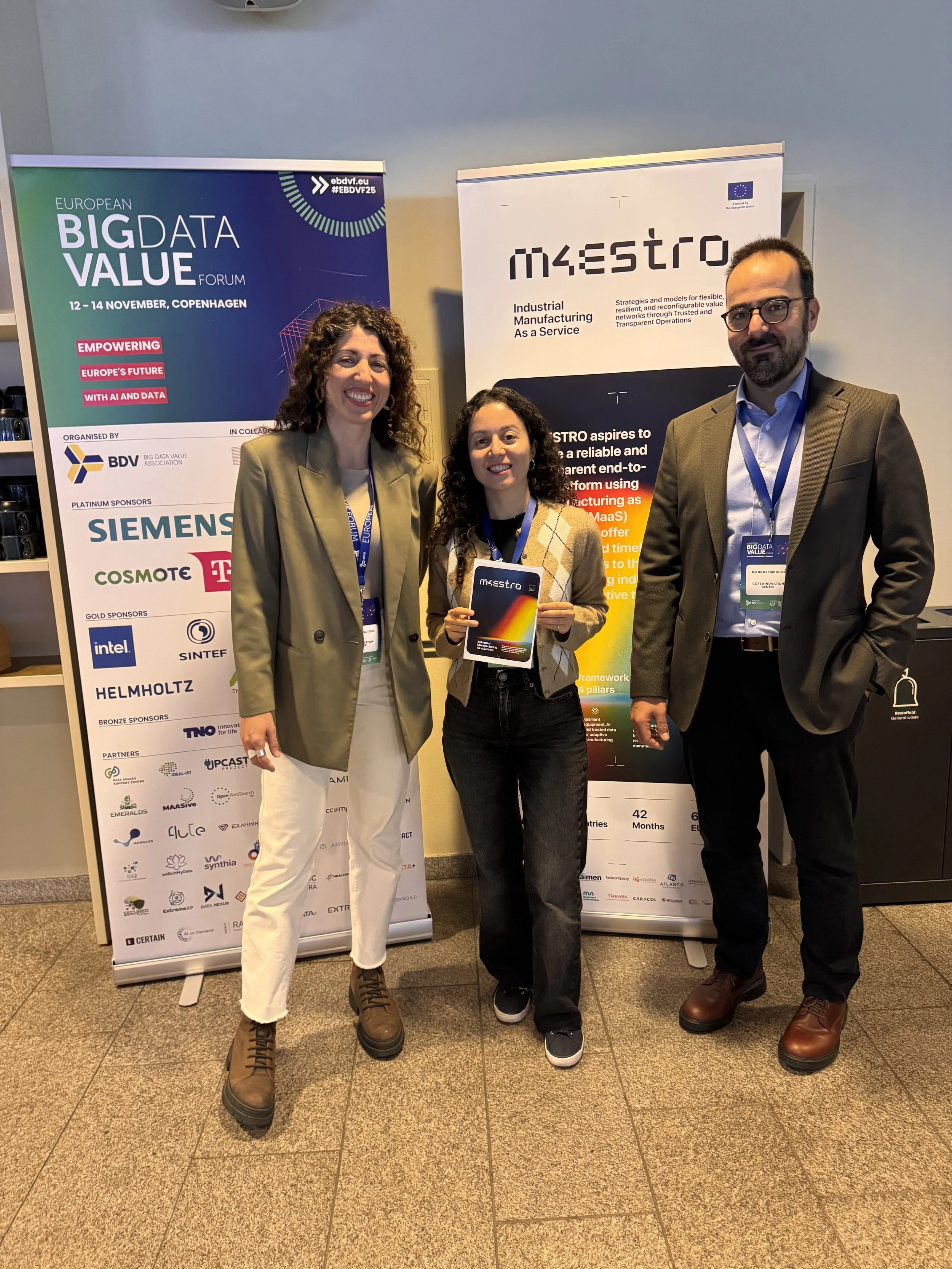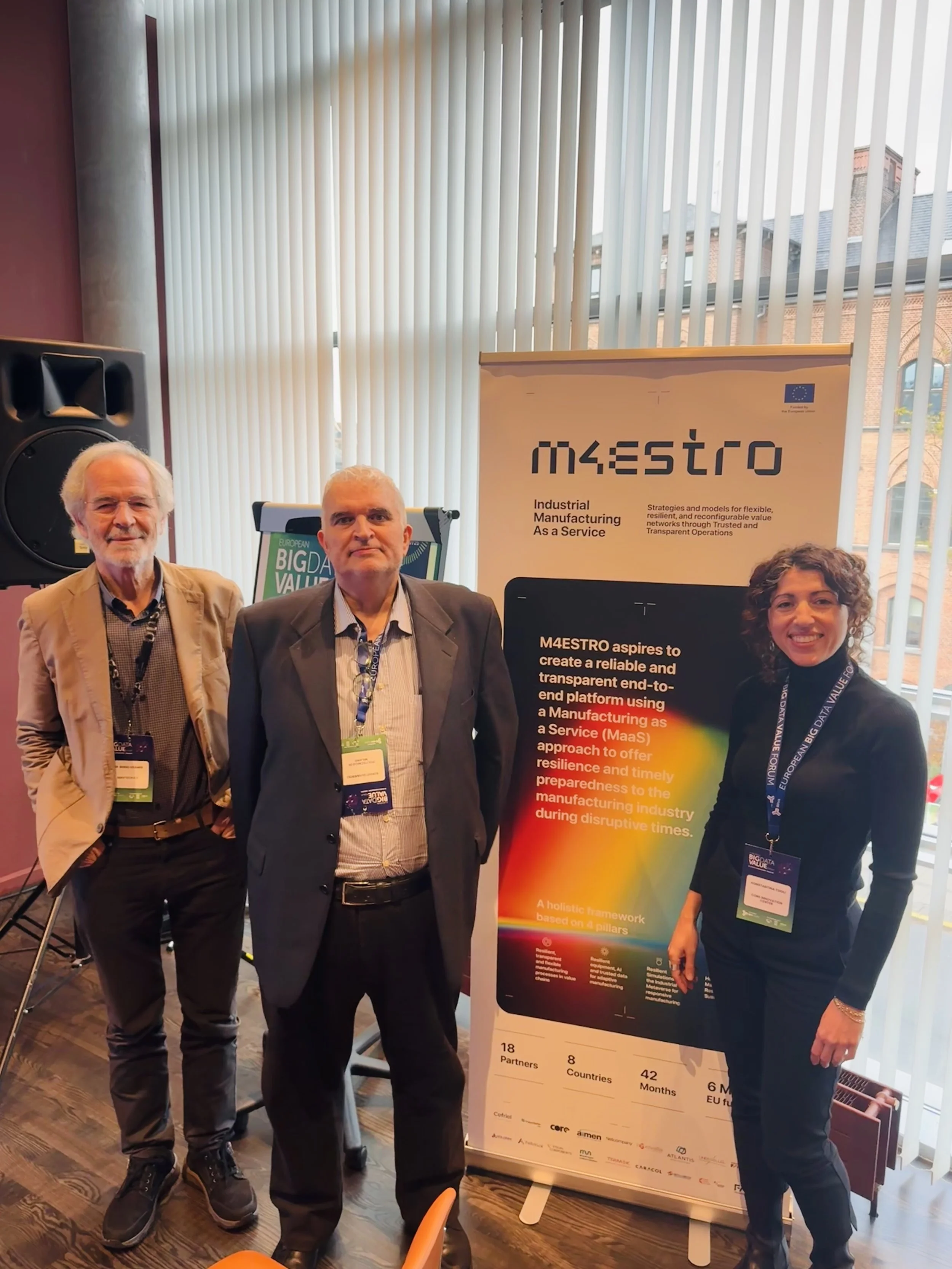M4ESTRO introduces an end-to-end, data-driven platform that enables manufacturers to sense disruptions, reconfigure value chains, and execute decisions through Dynamic Service Level Agreements (SLAs). The platform embodies a vision of predictive, adaptive, and human-centred manufacturing, where collaboration happens securely across company boundaries and every participant retains data sovereignty.
To make this vision tangible, M4ESTRO brings together several technological building blocks. Data Spaces form the trust layer, defining the governance and rules that allow companies to share data safely. The Digital Thread ensures continuity and traceability of information along the product lifecycle, while AI and collective intelligence deliver real-time insights and optimisation. Digital Twins provide simulation and “what-if” capabilities to anticipate potential disruptions, and Dynamic SLAs translate service agreements into machine-readable, enforceable contracts that keep supply chains accountable.
This technological stack responds directly to Europe’s most pressing industrial challenges. Despite the promise of digital manufacturing, three barriers still hold back large-scale adoption: a persistent trust gap between partners, the integration burden caused by non-standard interfaces and high IT costs, and a skills and technology readiness gap, particularly for SMEs. M4ESTRO addresses these head-on by embedding trust mechanisms into its architecture, offering plug-and-play interoperability through standard frameworks such as RAMI 4.0, AAS, and the Eclipse Dataspace Protocol, and simplifying participation for smaller enterprises through lightweight integration tools and intuitive interfaces.
Through this foundation, M4ESTRO builds multi-level industrial resilience. At the digital level, it enables companies to collaborate securely in shared data environments. At the supply-chain level, it allows networks to automatically reconfigure when disruptions occur, maintaining production flow. At the manufacturing level, AI-assisted scheduling ensures operations continue efficiently even under stress. And at the human level, M4ESTRO keeps people in control, providing transparent dashboards and decision-support systems that turn data into meaningful action.
This approach is demonstrated in the FAE-IMECH use case, which represents the electronics and mechanical sectors. FAE, a leader in rapid PCBA prototyping, integrates M4ESTRO to move from manual supplier management to predictive resilience. The system analyses bill-of-materials data, assesses supply risks, and automatically suggests alternative sourcing options, while Dynamic SLAs monitor supplier performance in real time. When a project requires precision mechanical parts, the platform seamlessly connects FAE with IMECH’s manufacturing services through the shared Data Space. The result is a workflow that is not only faster but inherently adaptive - able to anticipate and respond to disruptions before they impact production.
Beyond the pilots, M4ESTRO’s expected impact extends to the whole European manufacturing landscape. It establishes a trusted, standardised digital foundation for Data Spaces and MaaS adoption, empowers SMEs with accessible AI and interoperability tools, fosters sustainability by enabling circular material flows and electronic component reuse, and strengthens Europe’s industrial autonomy through resilient, interconnected supply chains.
In essence, M4ESTRO connects the dots, from interoperability standards to AI intelligence and dynamic execution, transforming data sharing into resilience and turning the concept of Manufacturing-as-a-Service into a practical reality for European industry.



